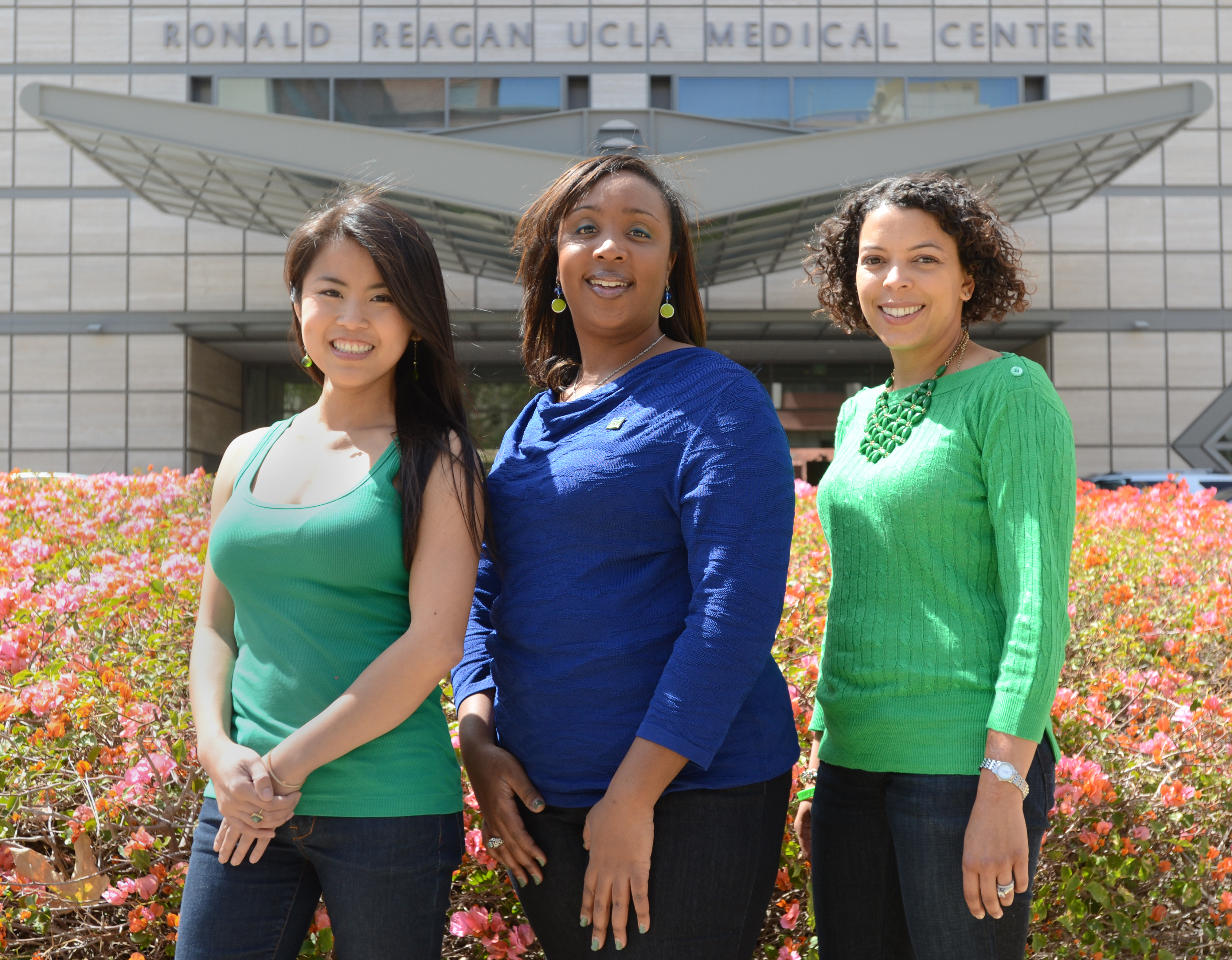Women who received organ transplants at UCLA Medical Center honored as “Inspiring Women”

(From left) Vicky Nguyen, Wendy Rodgers and Leiauna Anderson have received treatment from Ronald Reagan UCLA Medical Center and are ambassadors of non-profit Donate Life’s “20 million in 2012″ campaign, which hopes to register 20 million people as organ donors by the end of the year.
By Ariana Ricarte
April 3, 2012 7:32 a.m.
Leiauna Anderson was seven months pregnant with her first child when she noticed something was wrong.
Her baby had not moved in her stomach for a while, so following her instincts, she quickly drove herself to the hospital. At that moment, she had no idea her own life would depend on the tragic death of a young woman, hundreds of miles away.
When Anderson arrived at the hospital with extremely high blood pressure, she was told that her baby did not have a heartbeat.
Doctors tried to induce labor, but the next morning Anderson’s blood pressure dropped dangerously low, and they performed a cesarean section by surgically removing the baby.
They soon discovered that Anderson’s liver had ruptured and that she needed a transplant as quickly as possible. She was transferred to the Ronald Reagan UCLA Medical Center under the care of surgeon-in-chief and liver transplant expert Ronald Busuttil.
There, she received a bridge to transplant, an organ that was not a perfect match, in order to buy time until a matching organ could become available.
A few days later, a liver belonging to a young woman who had died in a motorbike accident became available. It was a near-perfect match.
Anderson, a UCLA alumna, now works with the Culver City Department of Motor Vehicles to educate its staff about organ donations so that they can better inform their clients about signing up to be organ donors.
Along with two other women treated at UCLA, Anderson was recently named an “Inspiring Woman” for Donate Life, a non-profit organization that manages and promotes organ donation.
Currently, there are more people in need of organs than are available, said Tenaya Wallace, national director for the “20 Million in 2012″ campaign run by Donate Life. More than 100,000 patients in the United States are waiting to receive an organ, although only about 14,000 people registered as donors in 2011, according to Donate Life’s website.
“This campaign is so important, because if you can get people aware of this, and how life-saving it can be, it can get people to understand how humanitarian it is for them to be an organ donor,” Busuttil said.
The campaign has set the goal of registering 20 million people as organ donors by the end of the year, Wallace said.
Anderson is one of Donate Life’s “12 Inspiring Women” from across the country, a group of leaders in the organ donation community who advocate for the campaign.
“We’ve put these beautiful faces on organ donation, and they’ve helped share their stories,” Wallace said. “These women have triumphed over adversity and have found ways to help save lives.”
Anderson said she hopes to inspire people by volunteering to speak to the families of donors at events in order to share her transplant story and journey.
“I didn’t realize how much speaking at these events touched people,” Anderson said. “I’ve had several people come up to me, and it’s incredible to know that the 10 minutes I spoke made an impression on them.”
In the same year as Anderson’s transplant, another woman, Wendy Rodgers, also one of the “12 Inspiring Women”, was struggling with lupus, which caused her kidneys to fail. For nine years, she waited for a kidney with dialysis, a procedure which filters waste from the blood through a machine.
Finally, she was finally able to get a transplant at UCLA.
Rodgers is also an ambassador for Donate Life, and she focuses specifically on kidney disease and black patients.
“The African American community is the most in need but the least informed about (organ donation),” Rodgers said. “It’s important for me to help educate them about this.”
Black patients, along with other minorities, are three times more likely to suffer from end-stage kidney disease than white patients, according to Donate Life’s website.
Rodgers said that her experience made her realize how interconnected human lives are, especially since the mother of her donor made the decision to donate her daughter’s organs on Mother’s Day weekend.
“I have an appreciation for life, a deeper care for the life that I live. A deeper value for each day because we don’t have to be here another day,” Rodgers said. “Through this work I want the mother of my donor to see that I am
truly impacted.”
Another one of the “12 Inspiring Women,” Vicky Nguyen, received her first liver transplant at UCLA when she was 2 years old. Then, because of health complications, she received a second transplant when she was 16.
She has lived a healthy life as an advocate and volunteer.
“When you become a registered donor, you have already influenced multiple people’s lives,” Nguyen said. “You are affecting everyone on a positive note.”

